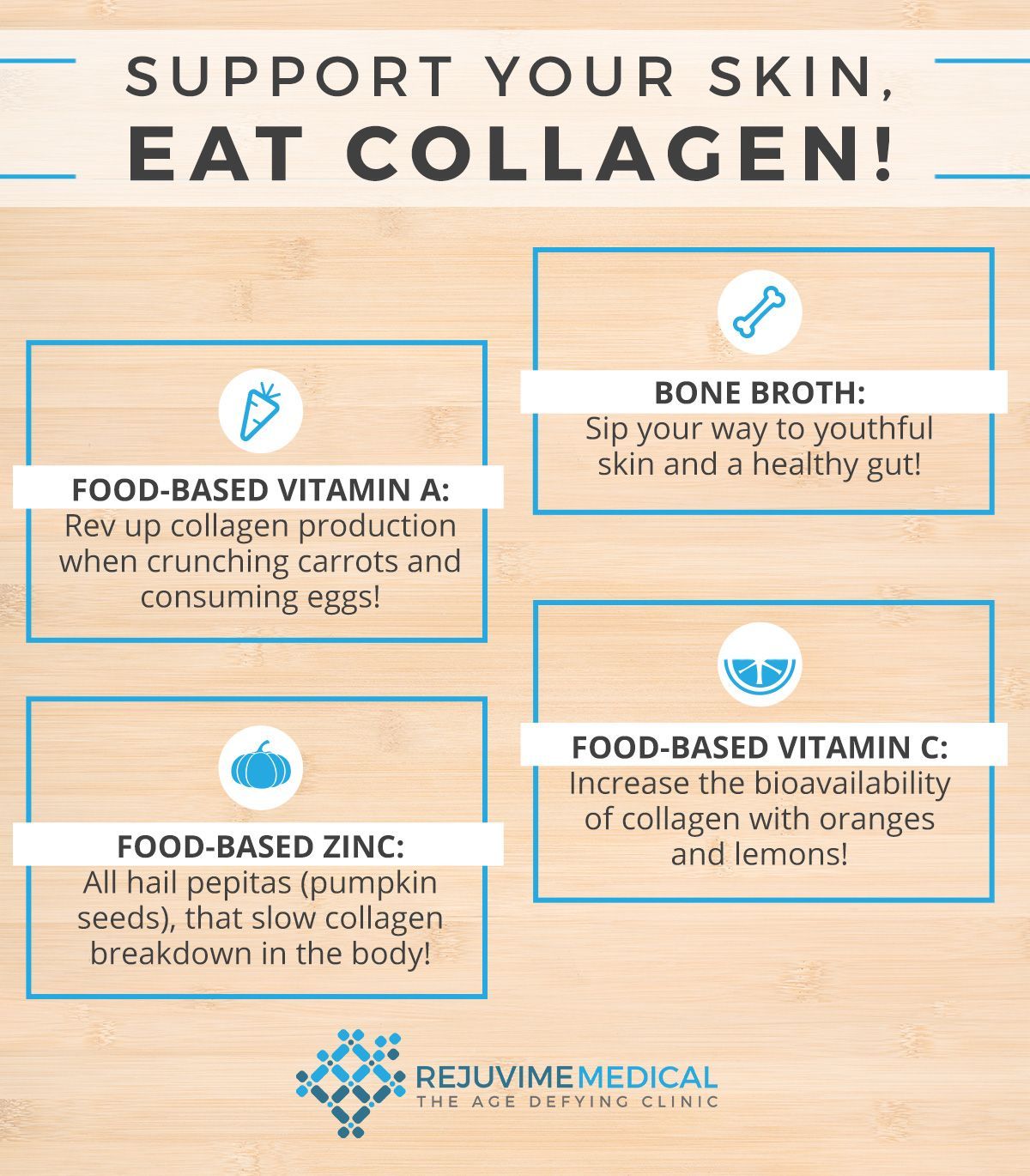Support Your Skin, Eat Collagen!

As science progresses, we continue to learn the advances of anti-aging properties and protocols. Now that you’ve booked an appointment with Rejuvime Medical for an anti-aging therapy, you’re getting excited for your first appointment, but you still want to get a head start on the process? There are some simple things to implement to help you get a jump on collagen production.
All about collagen
Collagen has been making an appearance in many health and beauty products such as facial lotions or in supplements, so what exactly is collagen?
Collagen is the most expansive protein in our body, specifically type one. Type one collagen is abundant in bones, skin, muscles, blood vessels, tendons, and the digestive system. Type two is found in connective tissue, and type three is part of the extracellular matrix found in our organs and skin. It’s important that we consume collagen because it gives our skin strength and elasticity, and in us aging folks — thank you degenerative aging — that’s wildly essential. It also aids in replacing dead skin cells and supports our joints and tendons. Recent research has even indicated that collagen supports gut health and helps balance GI inflammation; think leaky gut syndrome.
As collagen production declines as we age, a poor diet and other lifestyle factors can also deplete collagen levels. Factors such as a high sugar diet, smoking, and sun exposure cause collagen levels to drop.
How is collagen increased?
First and foremost, you don’t necessarily have to consume collagen, you can try supplementing with different amino acids, or the precursors to collagen. The highest percentages of amino acids found within collagen include:
- Proline
- Glycine
- Glutamine
- Arginine
 If you’d rather skip right to collagen, here are some amazing foods to incorporate to boost collagen and collagen production.
If you’d rather skip right to collagen, here are some amazing foods to incorporate to boost collagen and collagen production.
Bone broth – If you’ve ever made soup broth, you’ll usually find a jiggly layer on the surface that some scoop up and discard – refrain from that! In that layer is gelatin, which is the breakdown of collagen. This form is highly absorbed and contributes to gut and immune health, probiotic growth and balance, and joint support. Bone broth is also packed with the amino acids listed above.
Food-based vitamin A – Carrots and chlorella are excellent vegetable sources of vitamin A, and eggs, butter, and beef liver are all animal sources of vitamin A. Consuming foods high in vitamin A supports collagen synthesis. Nutrient tip: if you’re consuming veggie based vitamin A, always eat it with a little fat since vitamin A is fat soluble, with this you’ll aid in its absorption.
Food-based vitamin C – Citrus foods, such as lemons and oranges, are high in vitamin C and help create a network that connects amino acids for collagen synthesis and aids in the bioavailability of collagen.
Food-based zinc – Pumpkin seeds are one of the highest plant-based sources of zinc, which acts as a collagen cofactor and slows the rate of collagen breakdown.
Are you ready for glowing skin?
If you’ve taken action by consuming collagen-rich and collagen-enhancing foods and are ready for an anti-aging protocol by the professionals, contact Rejuvime Medical today!
The post Support Your Skin, Eat Collagen! first appeared on Rejuvime Medical.
Get in Touch
Questions? Contact us today by phone or book an appointment online.
Questions? Call our office:
(225) 228-3128





